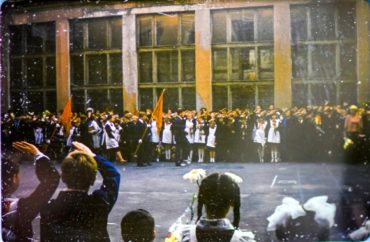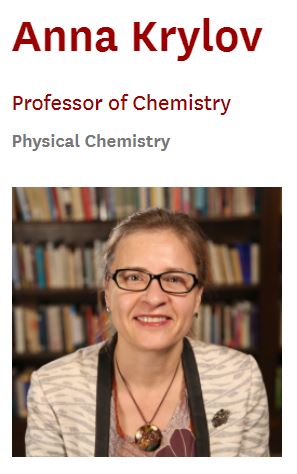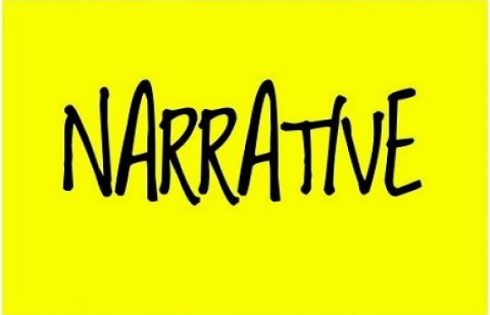
Chemist describes ‘an atmosphere of ideological control, omnipresence of ideology’
Contemporary American university life resembles education under the USSR, a Soviet émigrée professor wrote in a November 28 essay for Heterodox STEM.
Anna Krylov, a chemist at the University of Southern California, left the Soviet Union in 1991, not long after the collapse of the Berlin Wall.
“I thought I would never again experience an atmosphere of ideological control, omnipresence of ideology, policing of speech and thought, suppression of dissent, compelled speech, fear, and self-censorship,” she wrote.
However, her life as a chemistry professor in a contemporary American university has reminded her repeatedly of her years under the Soviet regime.
Krylov identified four totalitarian tendencies in American education that recall Soviet communism: self-censorship and fear, pervasive ideology, intolerance of dissent, and top-down social engineering.
George Orwell’s fictional work “1984” describes a totalitarian dystopia with all of these features, and Krylov repeatedly cited the novel as descriptive of both Soviet and American academic life.
 Self-censorship, which Krylov (pictured) defines as “the refusal to produce, distribute, circulate or express something for fear of punishment,” is a second pandemic in American universities, she wrote.
Self-censorship, which Krylov (pictured) defines as “the refusal to produce, distribute, circulate or express something for fear of punishment,” is a second pandemic in American universities, she wrote.
“When I choose not to say in a faculty meeting that considering only diversity candidates for a faculty search is discriminatory because I am afraid of being ostracized, or worse — that is self-censorship,” Krylov wrote.
“This fear is experienced at all career stages from graduate student to emeritus faculty,” and it is rational, she continued. The stories of Dorian Abbot and many other canceled professors who refused to self-censor demonstrate that academics have good reason to fear dissent on diversity issues.
Even more, polls and surveys indicate high levels of self-censorship, even when the topic is not specified, Krylov wrote.
For example, nearly 80 percent of faculty participants in a 2021 MIT Free Speech Alliance poll responded “Yes” when asked “Are you worried given the current atmosphere in society that your voice or your colleagues’ voices are increasingly in jeopardy?”
In a totalitarian system, ideology pervades everything
“In the USSR, everything and everyone was scrutinized through the lens of Marxist-Leninist ideology,” Krylov wrote. The universities analyzed every topic — literature, history, fashion, science, religion — in terms of class struggle between oppressors and oppressed.
This dominant ideology has a clear parallel in universities today where “we are now told to view everything through the lens of Critical Social Justice,” Krylov wrote. “Systemic racism” and “systemic sexism” are everywhere, according to the ideologues. The overriding goal of social justice affects our treatment of everything, even fields that supposedly have other objectives, like patient health, scientific rigor, or pursuit of truth.
Even some school mathematics programs have been overturned because someone thought they undermine social justice, according to Krylov.
In America as well as the USSR, university life squashes dissent
Social coercion and ostracism, omnipresent in the USSR, strongly resemble American cancel culture, Krylov wrote. Just as in the Soviet Union, dissidents are disinvited from universities, deplatformed, or fired. Journals retract scientific papers because some people find their results offensive or they “contradict the dominant narrative,.”
Entire organizations are “institutionalizing censorship.” Recently the Royal Society of Chemistry issued guidelines to journal editors to “consider whether or not any content [in a submitted manuscript]…might have the potential to cause offense.”
Even more, “the memos and published policies emphasize that it is the perception of the recipient that determines offense, regardless of author intent.”
In September 2022, the science journal Nature Human Behaviour reaffirmed its decision to update editorial and ethics guidelines to avoid publishing research that may cause indirect harm “to human population groups.”
“Newspeak,” Orwell’s term in “1984” for an imaginary language that reduces thought by eliminating words, has invaded the academy, Krylov wrote.
Common words are rejected as violence — for example, in 2019 the journal Nature published a letter calling for the substitution of “quantum advantage” for the common technical term “quantum supremacy,” because the second term is associated with racism and colonialism.
Just like their American counterparts, Soviet universities were “obsessed with demographics,” Krylov wrote. Members of certain populations were barred from universities through strict quotas.
This is not so different from American universities, many of which which have abandoned tests and other merit-based metrics in the name of equity. Even more, “race-based admissions has become common practice,” Krylov noted.
Krylov offered two solutions.
First, she exhorts readers to speak up and refuse Newspeak. Second, dissidents can ally themselves with organizations such as the Academic Freedom Alliance, Foundation for Individual Rights and Expression, Foundation Against Intolerance and Racism, and the Heterodox Academy. Through the networks and resources these associations provide, independent thinkers can find platforms and protection.
Through courage and alliances with sympathetic others, resisters to social justice ideology must “do [our] share in defending humanism, democracy, and the liberal Enlightenment,” Krylov concluded.
MORE: NYU professor quits academic group requiring DEI statement, cites ‘duty to truth’
IMAGE: Shutterstock/Lyudmila2509





Please join the conversation about our stories on Facebook, Twitter, Instagram, Reddit, MeWe, Rumble, Gab, Minds and Gettr.